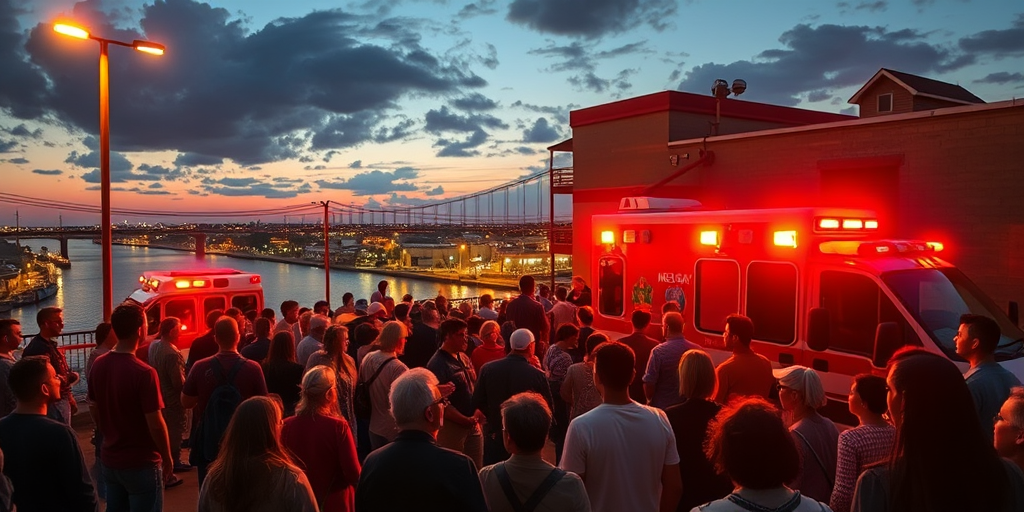Migrant Shelter in McAllen Anticipates Surge in Asylum Seekers Following Court Ruling
A recent federal court ruling has brought a potential increase of asylum seekers to the Humanitarian Respite Center in McAllen, Texas. Managed by Catholic Charities of the Rio Grande Valley, the center has been notably quiet since previous restrictions on asylum claims were imposed. With the latest court decision allowing individuals fleeing persecution and torture to seek asylum in the United States, Valley residents should prepare to face an uptick in humanitarian needs.
A New Era for Asylum Seekers
The ruling overturns some of the restrictive asylum policies enacted under the Trump administration. However, the U.S. Department of Homeland Security (DHS) maintains its commitment to tightening asylum protocols, citing concerns over potential fraud. “The D.C. Circuit’s ruling in no way requires DHS to restart catch and release,” affirmed Tricia McLaughlin, Assistant Secretary at DHS, in a statement.
Despite the government’s stance, Catholic Charities Director Norma Pimentel expressed optimism. “I’m glad that asylum remains an option for families who truly require protection,” she said. Pimentel anticipates an increase in asylum seekers, which will test the capacity and resources of the respite center in McAllen.
McAllen’s Humanitarian Respite Center: A Community Pillar
Founded to address the influx of migrants along the southern border, the Humanitarian Respite Center has served as a temporary shelter for thousands over the years. After processing by U.S. Customs and Border Protection, migrants often find themselves here, receiving essential services such as meals, clothing, and medical care.
Local impact is undeniable, with the center often serving as a focal point for the community’s humanitarian efforts. As Kristina Gonzalez, a resident of McAllen, notes, “This center is not just about providing immediate relief; it’s a testament to our community’s commitment to human dignity.” The RGV’s strong sense of community has repeatedly been a source of resilience during previous migrant waves.
The Broader Context: U.S. and Mexico Relations
Guadalupe Correa-Cabrera, an expert on organized crime and border issues, highlights potential diplomatic implications. She believes the U.S. might pressure Mexico to keep asylum-seeking migrants on their side of the border, a sentiment echoed by migrants like a Haitian national in Matamoros. For many, the idea of waiting in Mexico presents challenges, given the country’s complex socio-political climate.
“How these policies unfold will deeply affect both nations,” Correa-Cabrera points out, emphasizing the delicate balance of managing international relations while addressing humanitarian concerns.
Local Consequences and Public Response
For the Rio Grande Valley, these changes aren’t without logistical challenges. Increased asylum seekers will necessitate enhanced coordination among law enforcement agencies, healthcare providers, and non-profits. As Mayor Javier Villalobos of McAllen put it, “While we stand ready to help, the need for federal support is critical because our local resources are limited.”
The ruling reinvigorates conversations around local engagement and emergency preparedness. Communities like those in McAllen are engaging residents through town halls and community meetings to discuss potential impacts and responses. Public input is being solicited to ensure actions align with community interest.
Historical Parallels and Future Implications
Reflecting on the Valley’s history of adapting to policy shifts and migrant waves, local leaders see this episode as another chapter in a long-standing narrative. The region has previously managed large-scale asylum seekers, most notably during the 2014 unaccompanied minor crisis. Lessons learned emphasize the importance of collaboration across local, state, and federal entities.
For the future, maintaining open channels of communication and fostering partnerships will be essential. By collaborating with organizations such as Catholic Charities, RGV leaders aim to bolster the infrastructure needed to support migrant populations without overwhelming local systems.
Engage and Learn: Community Resources Available
For Valley residents looking to stay informed or get involved, Catholic Charities offers volunteer opportunities and regular updates on their initiatives. The city of McAllen’s official website also provides resources and contacts for those interested in participating in local supportive efforts.
In conclusion, as the Rio Grande Valley anticipates waves of asylum seekers, the local community is reminded of the ever-evolving landscape of migration and the region’s pivotal role in shaping humane responses. As the world watches this border region, the resilience and solidarity of Valley residents will undoubtedly continue to shine through.







